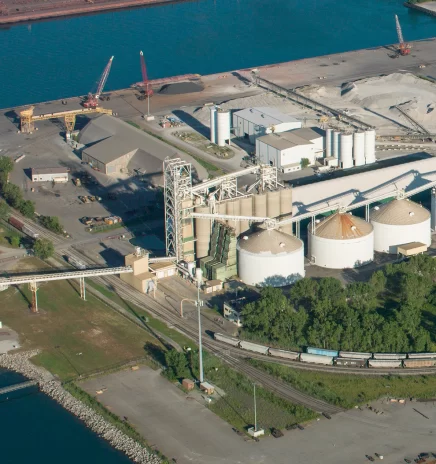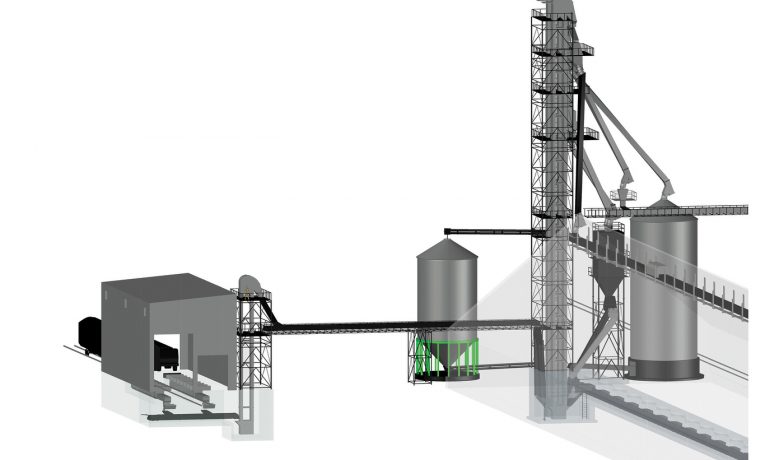Wisconsin Worldwide: Lake Michigan State Rolls Out Bipartisan Plan to Grow Agriculture Exports
“We believe that we have a lot of opportunity for Wisconsinagricultural exports,” says DATCP Secretary-designee Randy Romanski, who was appointed to the position by Evers June 1, 2020.
The state’s Wisconsin International Agribusiness Center (WIAC) works with food, forestry and agriculture companies based in the state to grow their export businesses through one-on-one consulting, trade shows, trade missions and inbound buyer missions. Its focus includes maximizing waterborne transportation.
“Waterborne shipment on the Great Lakes or rivers can be an economical means to ship large quantities of bulk items,” Romanski says. “Having a broad range of transportation options also increases the competitiveness of agribusinesses in our state.”
Wisconsin’s top export markets are Canada, China, Japan, Korea and Mexico. Exporting agriproducts represents $3.37 billion in annual business that involves 130 countries, according to Romanski.
“Wisconsin’s commercial ports are the heart of our states transportation economy,” says Adam Tindall-Schlicht, director of Port Milwaukee and president of the Wisconsin Commercial Ports Association (WCPA).
A 2018 study found that maritime commerce from Wisconsin’s Great Lakes ports generates $1.4 billion in economic activity annually. A 2020 National Waterways Foundation analysis found that Wisconsin’s inland activity on the Mississippi River contributes to $1.1 billion in state and local tax revenue.
At a recent meeting, WCPA revealed its new international marketing brand, “Wisconsin Ports,” to help promote commercial and recreational use of the state’s ports by global customers and travelers.
Constructing New Capacity
The DeLong Co. has chosen Port Milwaukee as the location for its new Agriculture Maritime Export Facility. The terminal on Jones Island will transload grain for export.
The DeLong Co. is headquartered in Clinton, Wisconsin, and it operates 36 facilities and offices – most of which are located in Wisconsin. The family-owned company is the No. 1 exporter of containerized agricultural products, according to the 2020 Journal of Commerce export rankings.
The $35 million terminal investment is one of the largest in the port’s history. DeLong will lease 3.9 acres at Jones Island, which provides direct access to the inner harbor. The long-term, 30-year lease with the port includes annual rent payments of about $3,000 per acre, according to a Port Milwaukee news release. The area being redeveloped into the intermodal transload facility is currently considered underutilized.
The facility is being specifically designed for transloading and exporting Dry Distillers Grain with Solubles (DDGs), a byproduct of the ethanol crushing process. DDGs are used as a nutritional supplement to animal feed. Soybeans, corn and grain are also envisioned for export in deep-draft Seaway-max vessels.
To aid in the project, Port Milwaukee was one of the first recipients of a U.S. Maritime Administration Port Infrastructure Development Program (PIDP) grant. The $15,893,543 grant was awarded in February 2020. DeLong is contributing $7,004,501 million to the project, Port Milwaukee $5.7 million and the Wisconsin Department of Transportation another $6.15 million.
The export facility – the first of its kind in the Great Lakes/St. Lawrence Seaway system – could be operational in 2022. DATCP states that preliminary estimates show 200,000-300,000 metric tons of grain passing through the terminal annually. Other estimates reach 500,000 annual metric tons.
In addition to helping create new capacity, the facility’s modern equipment helps promote energy-efficient trade.
The port is capable of harboring multiple handy-size vessels and covered barges, each with sufficient capacity to load an assortment of agricultural products for global delivery.
Overall, Port Milwaukee handles nearly 3 million tons of cargo annually. It finished 2020 with the highest annual cargo total of the past seven years, led by agricultural exports and cement. Despite the pandemic economy, Milwaukee’s overall tonnage of 2.81 million tons represented an increase of 5.4% over 2019.
Along with the terminal, the port’s infrastructure will also be modernized. Environmentally appropriate demolition of an existing structure is underway. Mooring may be upgraded.
A new fabric building will be erected in place of the older structure to protect the transfer of agriculture products and to contain dust during the process. The facility will include rail and truck gravity dump hoppers connected to a conveyance system to transport the food product into the fabric building. Inside the building, a reclaim system will be used to relocate stored material and provide cover when loading lakers. Vertical storage structures are also anticipated for handling soybeans and grain.
“It is expected the DeLong terminal will make the shipment of these products even more efficient,” Romanski says. “This helps because it cuts costs to move Wisconsin grain to other ports and becomes a more economical option for our neighboring states.”
The project expands the port’s international reach, allows for greater quantities of products to ship out and offers access to new customers. And it strengthens the businesses of regional corn and soybean producers in Wisconsin and the Midwest.

67th Navigation Season Well Underway on the Great Lakes-St. Lawrence Seaway
Despite facing increased economic uncertainty and unpredictability, the 67th navigation season is well underway on the Great Lakes-St. Lawrence Seaway. According to the St. Lawrence Seaway Management Corporation (SLSMC), the... Read More

International Agriculture Terminal to Reopen at Ports of Indiana-Burns Harbor
Ports of Indiana has selected Louis Dreyfus Company (LDC) to operate the grain export facility at its Lake Michigan port. LDC reported net sales of $50.6 billion in 2024. Over... Read More




